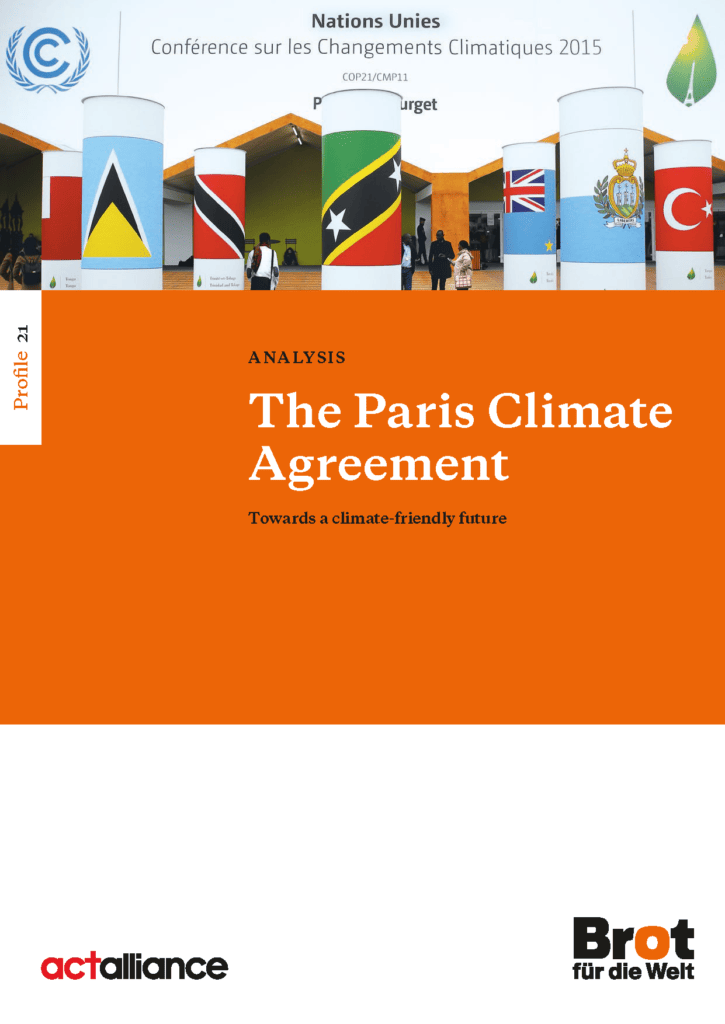This publication, written by ACT Alliance and its German member agency, Brot für die Welt (Bread for the World), analyses the Paris Climate Agreement, focussing especially on the communities who will face the greatest impacts from climate change.
Overview
On the evening of December 12, 2015, Laurent Fabius, then French Foreign Minister and President of the 21st session of the United Nations Framework Convention on Climate Change (UNFCCC), concluded the climate conference with a powerful statement: “With a small hammer, you can achieve great things.” By lowering his legendary green hammer, Fabius signaled unanimous acceptance of the new Paris climate agreement by all 195 parties of the UNFCCC.
Global Leaders Back Paris Climate Agreement
World leaders, including Xi Jinping (China), Narendra Modi (India), and Barack Obama (US), actively supported the Paris Climate Agreement. Personal interventions from these government heads underscored its significance. The accord marked a triumph for multilateralism and French diplomacy, with Fabius describing the negotiations as “the most beautiful and peaceful revolution that Paris has ever seen.” This success sharply contrasted with the disappointing 2009 Copenhagen climate negotiations.
Global Recognition of a Climate Policy Breakthrough
The Paris Agreement received global acclaim as a breakthrough in climate policy. The Guardian (UK) suggested it could “signal the end of the fossil fuel era.” The Economist (UK) emphasised its unparalleled focus on climate change risks. Chinese news agency Xinhua hailed it as a “particularly sweet victory for China,” acknowledging the country’s significant role in the negotiations.
Challenges and Future Impacts
However, merely crafting an agreement falls short of preventing climate change or shielding people and the environment from global warming’s devastating consequences. Current commitments fail to meet temperature targets or provide adequate financing for crucial climate adaptation measures. Nevertheless, the Paris Agreement represents a landmark decision shaping future policies, offering mechanisms for gradual achievement. Brian Deese, an adviser to Barack Obama, anticipates a surge in clean energy investments, foreseeing decreased competitiveness for coal, oil, and gas.
The agreement encourages parties to submit national plans by 2020, outlining their strategies for low greenhouse gas emissions over the next 30 years. Emphasising the national level, it opens avenues for civil society involvement, fostering broad public debate about a climate-just future.
Solidarity and Global Transformation
Interpreted as an expression of solidarity with poor and vulnerable states, the Paris Climate Agreement recognises shared responsibility in mitigating climate risks. It aims to enhance cooperation, bolster climate resilience in economically weak countries, and ensure their participation in and economic benefit from the transition to sustainable development. Implementing the Paris Agreement promises a transformation extending beyond conventional climate policy expectations. The accord successfully bridges the gap between industrial and developing countries, reflecting the current reality and enabling a more dynamic distribution of climate justice.
